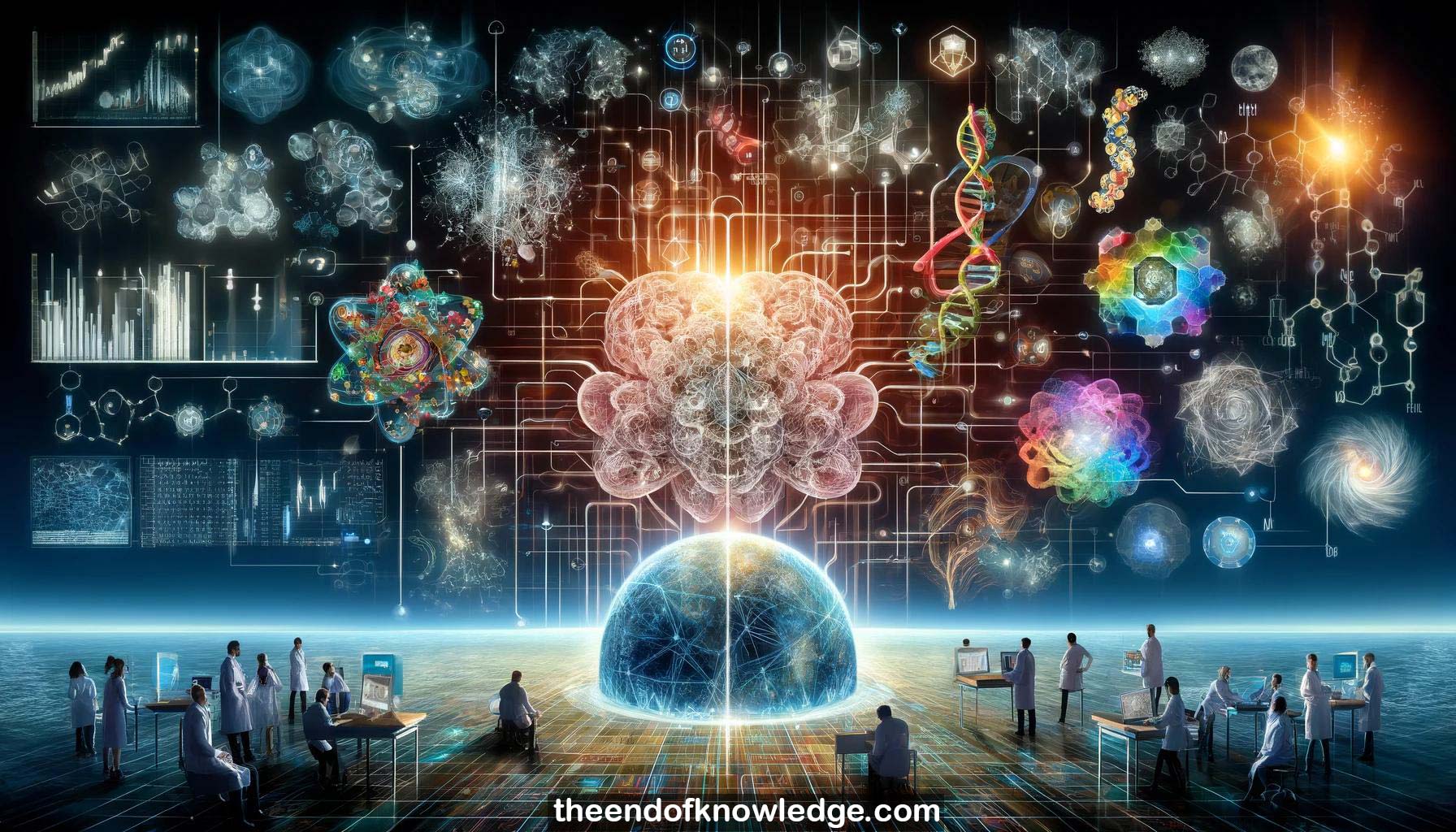 >
>
Concept Graph & Resume using Claude 3 Opus | Chat GPT4 | Gemini Adv | Llama 3:
Resume:
1.-DeepMind aims to solve intelligence to advance science and humanity, focusing on techniques for general intelligence.
2.-Science offers challenges and opportunities for AI due to unprecedented data scale, complexity, and need for superhuman control.
3.-DeepMind selects impactful scientific problems based on significance, data availability, and clear success metrics. They take a multidisciplinary, problem-focused approach.
4.-"Root node" problems like quantum chemistry and protein folding can unlock progress in many downstream application areas.
5.-Generalization, uncertainty quantification, and interpretability are especially important when applying AI to science.
6.-AlphaFold2 achieved a breakthrough in protein structure prediction, greatly outperforming other methods in the CASP14 assessment.
7.-AlphaFold2 is an end-to-end deep learning system incorporating evolutionary, physical and geometric constraints into its architecture.
8.-AlphaFold2 took 5 years to develop by a large multidisciplinary team, validating the importance of focused effort.
9.-Uncertainty estimates from AlphaFold2 correlate with disordered protein regions, indicating the model captures fundamental properties.
10.-AlphaFold2 enabled predicting structures for entire proteomes, greatly expanding experimental coverage (e.g. from 17% to 36% for human proteome).
11.-AlphaFold2's speed allows paradigm shift to predicting entire proteomes vs individual proteins, impacting research.
12.-AlphaFold2 recognized as a breakthrough by the scientific community. DeepMind aims to expand to 200M proteins in partnership with EMBL-EBI.
13.-The PDB and experimental biology community's investment in datasets and validation were critical for AlphaFold2's success.
14.-In functional genomics, DeepMind showed neural networks handling long-range interactions can improve prediction of non-coding DNA's influence on gene expression.
15.-For AI-assisted theorem proving in pure mathematics, learned models found connections between previously unlinked algebraic and geometric characterizations of knots.
16.-DeepMind is improving quantum chemistry methods for modeling matter, potentially enabling computational materials design.
17.-AI will rapidly accelerate scientific progress and discovery, like a new "Hubble telescope on steroids".
18.-Multidisciplinary collaboration with mutual respect between AI/ML and domain experts is key for successful application of AI to science.
19.-Blind assessments on holdout test data are important for evaluating an AI system's generalization, calibration and uncertainty estimates.
20.-For plasma control in fusion reactors, DeepMind trained models on simulations that successfully controlled real plasmas, a major engineering challenge.
21.-AlphaFold2 has limitations for disordered proteins lacking a stable structure. Predicting protein dynamics is an open challenge.
22.-AlphaFold2 is specialized for proteins, but its novel techniques may generalize to predicting structures of other molecules and polymers.
23.-Understanding the brain's specialized components guides defining competencies artificial general intelligence (AGI) should demonstrate.
24.-Pushmeet views AGI as systems matching human ability to generalize concepts, reason, and tackle new challenges. The bar keeps rising.
25.-DeepMind's key research interests include biology, genomics, neuroscience, mathematics, physics, and other areas where ML/AI can accelerate discovery.
26.-Interpretability in science means AI outputting human-understandable solutions (e.g. mathematical conjectures), not just focusing on explainable ML architectures.
27.-The quality and applicability of an AI system's outputs matter most to domain scientists, more so than the intricacies of the algorithms.
28.-We are at the beginning of an era of AI revolutionizing and accelerating scientific discovery across many domains.
29.-Problem selection considering data availability and measures of success remains crucial for impactful application of AI in the sciences.
30.-Cross-disciplinary dialog with mutual respect will be increasingly important as AI is applied more widely to open scientific questions.
Knowledge Vault built byDavid Vivancos 2024